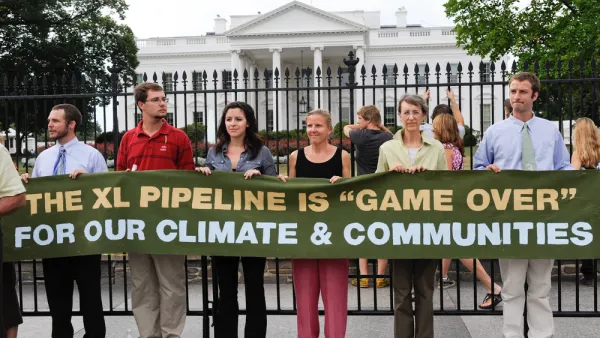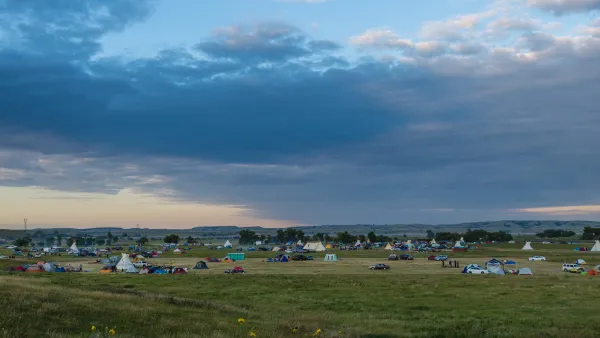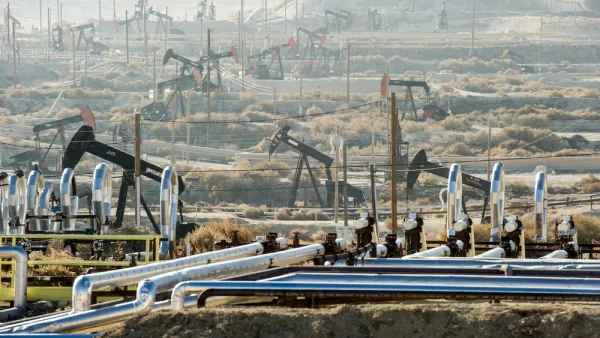The public is increasingly showing support for hydraulic fracturing of oil and gas - and it's reflected at the ballot box as many pro-drilling candidates were elected. In fact, the debate has shifted from banning to what to do with new tax revenue.
Dennis Cauchon reveals in two articles how the debate has shifted in many states to whether to spend the new revenues now or safeguard them for the future - if the states are fortunate enough to tax oil and gas. While New York currently has a moratorium on fracking, it might consider legislating new energy taxes in addition to regulations on the controversial drilling process. Ohio may already be considering increasing their minimal taxes.
"Voters are rewarding local politicians who support production. Ballot measures are distributing potential tax windfalls broadly. And most state legislatures are focused on managing the economic and environmental consequences of hydraulic fracturing, or fracking, so the drilling boom can speed up rather than slow down", writes Cauchon on the front page of USA Today.
In New York's Broome County - rich in natural gas from the Marcellus Shale, pro-fracking county executive Debbie Preston won her re-election.
"The trend is crucial to the nation's energy future because oil and gas production is regulated and taxed almost entirely by state and local governments. The federal government's role is largely advisory, except on federal lands and on pipelines." Considering that "(f)racking could produce oil or gas in as many as 36 states", dealing with potential royalties can be crucial to some cash-starved states. Cauchon notes that the "USA will become the world's No. 1 producer of natural gas in 2015 and oil in 2017, overtaking Russia and Saudi Arabia, respectively, predicts the International Energy Agency", as was reported here on Nov. 14 and Oct. 28.
"Even the controversial Keystone XL pipeline from Canada looks more likely. Pro-pipeline Democrat Heidi Heitkamp, winner in North Dakota's U.S. Senate race, predicts federal approval early next year."
Looking into the debate on whether to spend new oil and gas revenues, Cauchon writes in the business section of the increasing popularity of energy-rich states to model themselves on the mother of all 'legacy funds', Alaska's $42 billion Permanent Fund, developed in 1975, "pays cash dividends to residents every year, is the most famous example of a giant savings account built from energy taxes and royalties."
North Dakota is taking the trust fund approach as well with some of the energy revenues.
"The Legacy Fund is exceeding all projections. It brought in $580 million in the first 12 months from 30% of the state's oil and gas revenue. North Dakota can't spend any of the Legacy Fund until 2017, and then, two-thirds approval from the legislature is required to say where the money goes.
An alternative approach is taken by "Ohio Gov. John Kasich, a Republican, (who) wants higher oil and gas taxes to fund an income tax cut rather than a permanent fund."
The growing popularity of fracking due to the lucrative revenues that localities can gain from newly found oil and gas deposits was illustrated in a Nov. 20 NPR report by Erika Celeste on fracking exploration in Indiana State University in Terre Haute.
"If the company finds enough oil, it will set up a drill site at the edge of campus. Across the country the story is much the same. Oil and gas companies eager to tap domestic fuel sources are pairing with colleges and universities desperate to find new revenue sources.
Pennsylvania is considering drilling possibilities at six campuses. A new state law requires that half the fees and royalties from those leases go to the universities where the wells are located, and another 15 percent must be used to subsidize student tuition."
FULL STORY: Fracking boom gains momentum

Analysis: Cybertruck Fatality Rate Far Exceeds That of Ford Pinto
The Tesla Cybertruck was recalled seven times last year.

National Parks Layoffs Will Cause Communities to Lose Billions
Thousands of essential park workers were laid off this week, just before the busy spring break season.

Retro-silient?: America’s First “Eco-burb,” The Woodlands Turns 50
A master-planned community north of Houston offers lessons on green infrastructure and resilient design, but falls short of its founder’s lofty affordability and walkability goals.

Test News Post 1
This is a summary

Analysis: Cybertruck Fatality Rate Far Exceeds That of Ford Pinto
The Tesla Cybertruck was recalled seven times last year.

Test News Headline 46
Test for the image on the front page.
Urban Design for Planners 1: Software Tools
This six-course series explores essential urban design concepts using open source software and equips planners with the tools they need to participate fully in the urban design process.
Planning for Universal Design
Learn the tools for implementing Universal Design in planning regulations.
EMC Planning Group, Inc.
Planetizen
Planetizen
Mpact (formerly Rail~Volution)
Great Falls Development Authority, Inc.
HUDs Office of Policy Development and Research
NYU Wagner Graduate School of Public Service




























